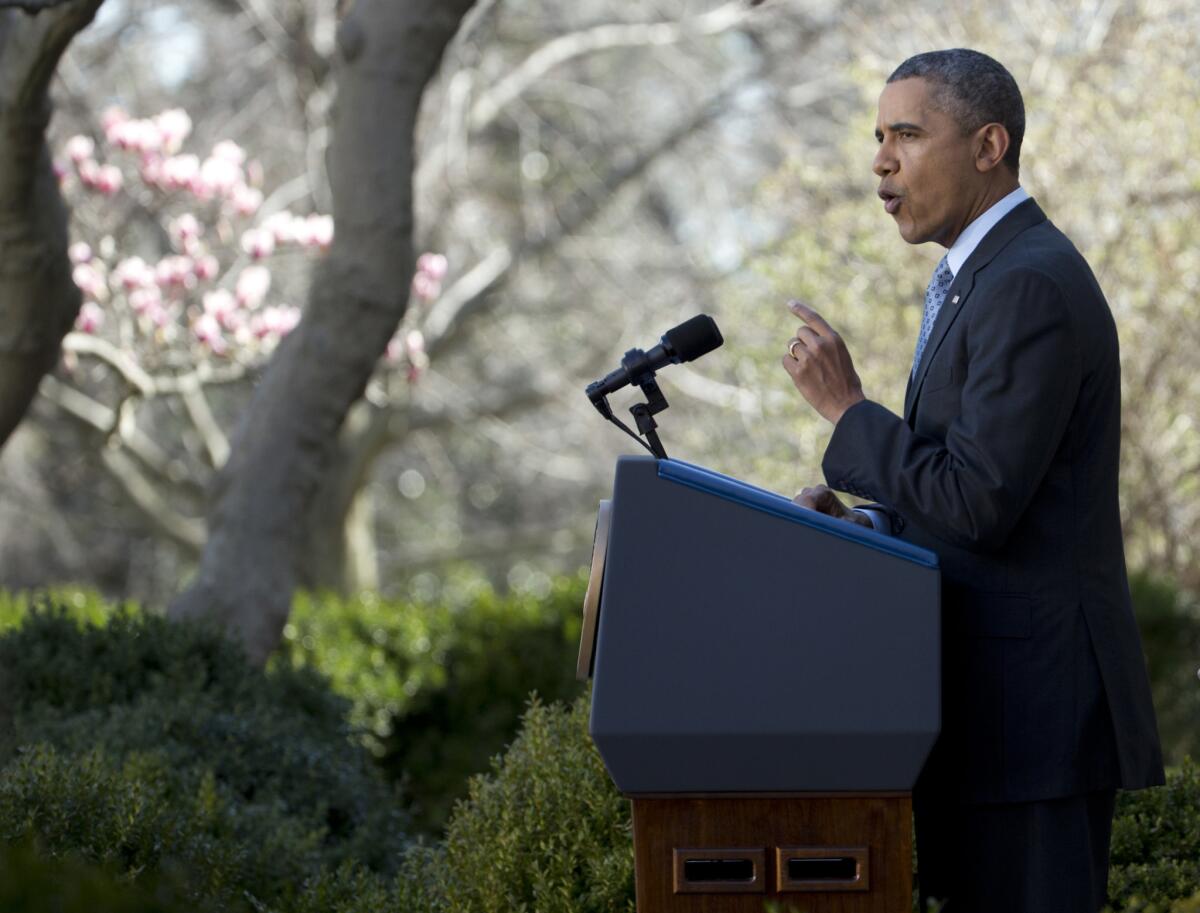California’s health exchange saw a late surge in Latino enrollment

Enrollment by Latinos in California’s healthcare insurance exchange surged in the final month of sign-ups after an intensive push to reach that key population.
“Our enrollment became more diverse in this last month, particularly among California’s Latino population; our enrollment became younger,” Covered California Executive Director Peter Lee said during a conference call with reporters Thursday after testifying with the heads of other state exchanges on Capitol Hill.
With 1.2 million Californians signed up for private plans, Lee said, “We’re proud of that accomplishment. We think it’s something that is giving peace of mind to many Californians. But we’re not done.”
Lee attributed the increased interest among Latinos to the fact that Covered California escalated its outreach in seven communities within the state that had low enrollment among Latino Californians: “I’m happy to note that hard work appeared to have paid off .… Our focus both by region, and on in-person and in-language support is now making a difference.”
Latino enrollment had been a weak spot for the otherwise high-performing California exchange. But Latino sign-ups comprised about 36% of the March enrollments, compared with around 18% of those in October, November and December. Overall, about 252,000 Latinos had signed up through Covered California in March, comprising 26.3% of the total and closing in on the target of 265,000, Lee said.
Lee said the state exchange would look for ways to boost its appeal to that population, which represents about 60% of the state’s uninsured. Some members of Congress, along with state lawmakers, have argued that the state’s effort to reach Latinos fell short last fall when California faced a shortage of enrollment counselors and could not provide a paper application in Spanish until December.
Overall, during the final month of enrollment in March, 416,000 Californians signed up for a health insurance plan, making it the most successful month on record for the state exchange. In addition to the 1.22 million people who signed up for private health insurance plans, more than 1.5 million were enrolled or deemed eligible for Medi-Cal, the state’s version of Medicaid.
California and other states have also made a huge push to get young people to sign up for health plans, a key component of keeping premium costs down and insuring the long-term viability of the program. California’s numbers among 18-to-34-year-olds, who represent 36% of the people eligible for subsidies, appeared to be trending in the right direction in the final month.
Lee said Thursday that by the end of March about 28% of enrolled Californians were young people, a slight improvement over February and exceeding the state’s projections for that age group.
Strong demand in the final days led the California website to crash or run slowly for some users, so the state is giving a reprieve to consumers who began their application before March 31. They can enroll in coverage as long as they finish their applications by April 15. Lee said Thursday that some 20,000 people finished the process on Tuesday alone. (On the final day of open enrollment, there were more than 750,000 unique visitors to the state’s website, which contributed to the website slowness).
Consumers who tell state officials that they were unable to start their online applications due to technical difficulties will also be allowed to apply, but they can no longer begin an application online and must seek help from Covered California representatives or certified insurance agents.
In addition, it is estimated that several hundred thousand people could qualify for a special enrollment period over the next few months if their circumstances change. That group could include graduating college students, families that move and workers who change jobs.
maeve.reston@latimes.com
Twitter: @MaeveReston
More to Read
Sign up for Essential California
The most important California stories and recommendations in your inbox every morning.
You may occasionally receive promotional content from the Los Angeles Times.











